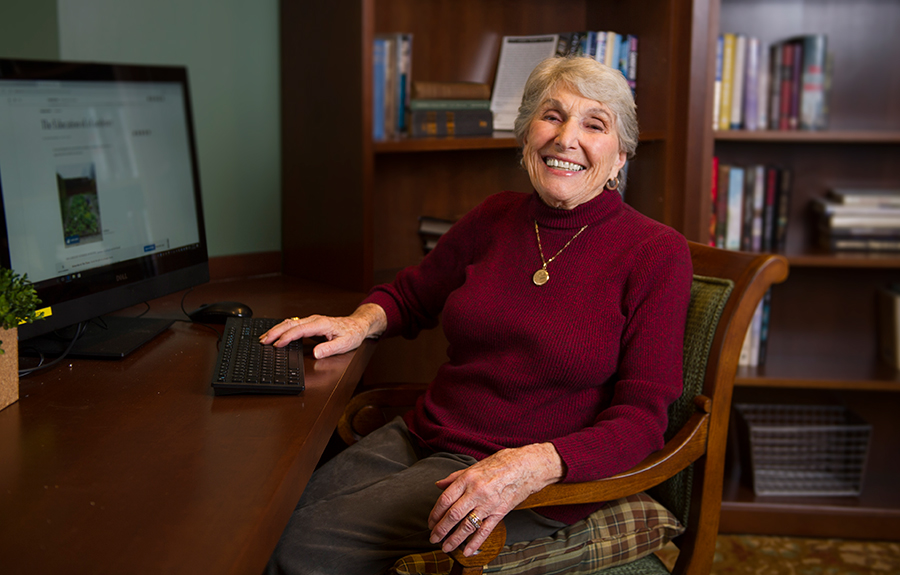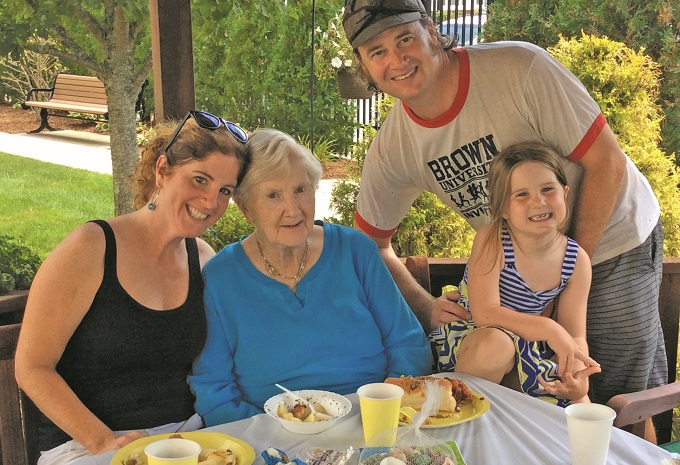How to Understand the Care Your Elderly Parent Needs — and How It Will Change
Taking care of your aging parents or loved one can be uncharted territory. There is no handbook explaining when to begin looking into senior living and no magic moment when it’s time to transition. Instead, you have to actively work at understanding what your elderly loved ones need and how those needs will evolve as times goes on. Here's how.
Ask
The first conversation you have should be with your parent. Start a dialogue and keep it going. The questions you ask today should be asked again and again so you can monitor changes and understand when it’s time to make a move.
- How are you managing the stairs?
- Are their modifications we can make to your home to make things easier?
- Would it be helpful to bring someone in to take care of household chores?
- Can you hear the telephone when it rings? How about the doorbell?
- How comfortable are you with driving? Should we look into other forms of transportation?
- When was the last time you had a checkup?
- What is your medication regimen?
- Are you getting out and about every day?
- What do you do for fun?
- How is the bill/overall financial situation?
- Are you able to see your friends as often as you like?
- What are you eating? Are you still enjoying time in the kitchen or would you like some ready-made meals or other alternatives?
It’s not always comfortable to ask these questions, so pepper them into conversation when it feels appropriate. Avoid turning a visit into an interrogation, and be sensitive to your parents’ feelings and any indication they’re getting embarrassed or defensive.
Spend a Day Walking in Their Shoes
They say actions speak louder than words, but experiencing your parents’ daily or weekly routine and all the accompanying difficulties could be a real eye-opener. It’s one thing to hear your father say he’s struggling to tie his shoes; it’s another matter entirely to be there and realize he’s spending 30 minutes every morning just trying to put on his sneakers. Other stumbling blocks are things younger and more able-bodied people take for granted. For instance, mobility aids such as motorized scooters in the grocery store seem like a viable alternative, but availability is limited, and sometimes they’re not fully charged.
Speak With Their Medical Team
Because of HIPAA, you’ll need your parents’ permission to access their medical records or speak with their doctor, but if you get the go ahead, by all means take full advantage. Even if your loved ones are in relatively good health now, being in the loop ensures you’ll know when issues crop up or if the doctor has any concerns.
It’s also helpful to attend appointments when possible. It’s nice to support your parents through a long wait time and intrusive exam, if they’re comfortable with it of course, and you’ll be able to know about tests and results on the spot.
Take Your Own Needs and Abilities into Consideration
It’s okay to be realistic about what you can do and what you can’t. We all want to be there for our parents, just like they’ve been there for us our entire lives. But unless you have training in a medical field or social services and a lot of free time, you won’t be able to provide the same level of care as you’d find in a senior living community — never mind the on-site amenities.
Know your limits and how they relate to your parents’ needs. If they need help with daily tasks and you can only visit on Mondays and Thursdays, there’s a distinct gap in care.
Read Up on Varying Levels of Care
Senior living communities aren’t one-size-fits-all housing but rather diverse, neighborhood-like environments designed to meet the evolving needs of residents. Continued care communities offer tiered options that may start with fairly independent living followed by assisted living or personal care in apartment-like complexes with memory care available for residents who eventually experience cognitive difficulties.
With all these choices under one roof, residents can transition from one level of care to the next without leaving familiar surroundings and friends behind. You’ll also have the aid of staff who can quickly identify when it’s time to increase support, ensuring your parent always has the care he or she needs.
Being an active part of your parents’ life and care team is the best way you can stay informed and be an ongoing source of support. To learn more about what it’s like living at Brightview, find a community and our team will be in touch.






